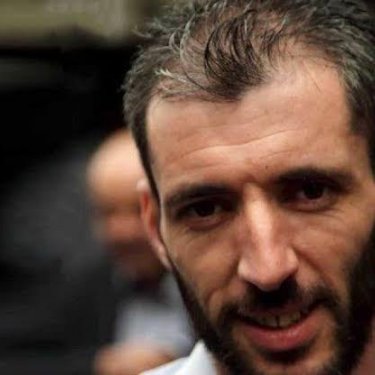Algerian reporter got 13 months in prison for texting government opponent

Reporters Without Borders (RSF) notes that Mohamed Mouloudj, an Algerian journalist who spent 13 months in pre-trial detention on a terrorism charge for texting a government opponent, has finally been released after receiving a 12-month prison sentence from a court in the Algiers suburb Dar El Beida yesterday (18 October). The court also gave him an additional one-year suspended prison sentence.
“Mohamed Mouloudj is free but the sentence of a year in prison and another year suspended testifies to a desire on the part of the authorities to restrict ‘permitted’ journalism to praising the government’s activities. Press freedom in Algeria has clearly declined to the point that the very possibility of practicing journalism is now in doubt. The judicial harassment to which journalists are subjected creates a climate of fear pushing them to censor themselves or just give up.
Mouloudj, who spent most of his career at the now closed daily newspaper Liberté, was jailed along with other people at the behest of an investigating judge in the Algiers district of Sidi M’hamed on 14 September 2021. He was originally charged with “membership of a terrorist organisation” and “endangering state security” but was finally convicted on the second charge alone.
He was arrested over the text he sent on 27 April 2021 to Ferhat Mehenni, the head of the Movement for Kabylie’s Self-Determination (MAK), requesting an interview for an article for Liberté. This text was absurdly deemed to be “evidence” of membership of a terrorist organisation and used as grounds for holding him in Koléa prison for 13 months pending trial.
As Algeria’s High Security Council (HCS) had classified Mehenni’s movement as a terrorist organisation on 18 May 2021, the Algerian justice system decided that Mouloudj’s text message to Mehenni must have violated Algeria’s terrorism law.
However, the offending text was sent in April 2021, before the MAK was deemed to be a terrorist organisation, meaning the charge violated the universal principle that laws must not be non-retroactive. Mouloudj’s prosecution and conviction also violated Algeria’s obligations with regard to press freedom and article 54 of Algeria’s constitution, under which no journalistic activity is punishable by imprisonment.
Other journalists are currently facing the possibility of long jail sentences under the terrorism law, which was toughened in June 2021. They include Radio M journalist Saïd Boudour and photo-journalist Jamila Loukil, the targets of relentless judicial harassment. After Oran’s prosecutor-general accused them of “conspiracy against state security,” “propaganda liable to harm the national interest” and “membership of a terrorist organisation” in April 2021, their case was referred last month to the anti-terrorism and cross-border section of the Sidi M’hamed court in Algiers.
